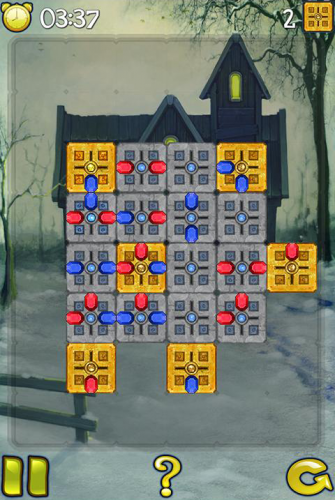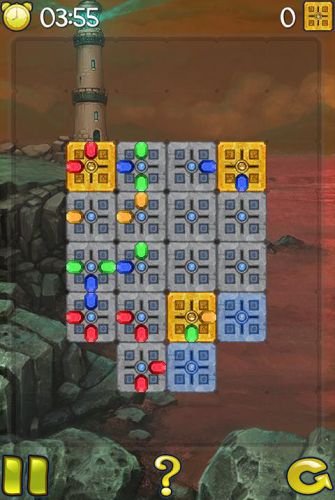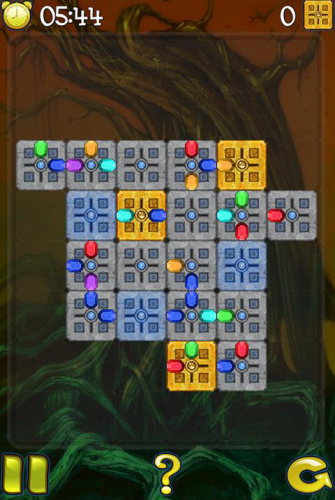Domestic developers who make “their Fallout” are often laughed at. Such teams are usually very young, very ambitious and have no idea what game development is. After a collision with reality, their ambitions instantly burn out, and with them the desire to finish the job.
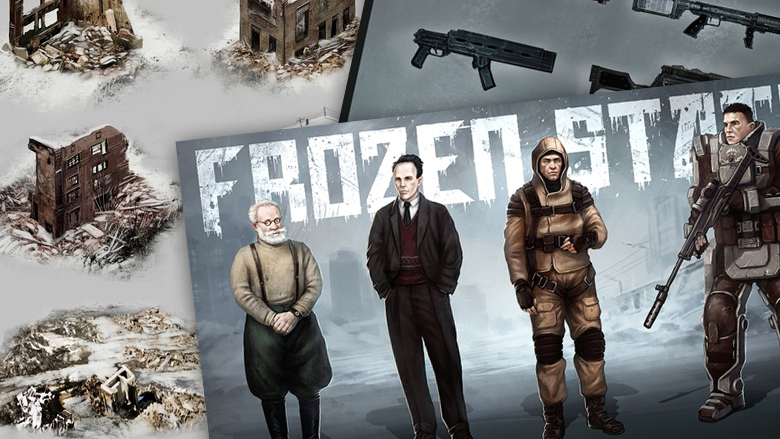
The history of Frozen State could also easily end in a puff. The game was the first major development of the Moscow studio Flox Studios, consisting of only three people, none of whom had previously worked in the gaming industry. They had plenty of ambition. In their free time from their main work, they created a survival game with an open world, crafting, stealth, action, procedural generation, an advanced role-playing system in the setting of a Soviet retro-futuristic city brought in by a blizzard of nuclear winter.
The most amazing thing is that Flox Studios managed to make such a game. Last August, a full-fledged release of the project took place, which was in early access for two years, and before that survived an unsuccessful Kickstarter campaign.
First steps
Flox Studios did not start as a company creating hardcore PC projects at all. In 2012, Alex Prokhorov, Anton Pozdnyakov and Anatoly Tsvetkov met and decided to try their hand at developing mobile games.
None of them set Napoleonic goals. The guys wanted to understand whether they could work together with each other, bring the first joint idea – Runeline – to the shelf in a digital store.
“We treated the game as an experiment, the most important thing for us during development was to understand whether we could do anything at all or not,” says Prokhorov, who is responsible for design and graphics at the company.
The project was released on the App Store and Google Play in the same year, but it failed to earn any money or fame – just to test your strength, to believe in yourself. It was possible to move on with the team.
Runeline (2012)
First Steps to the Frozen State
After the completion of the first product, Flox Studios had a choice. Either to continue working within the framework of the mobile platform on projects that are suitable for it, or on what the heart was for.
The final choice was not made immediately, but the second title, which the guys took up, was already being created for PC. It was about a mix of action, puzzle and platformer. But at a certain stage, work on it stalled, the team realized that it was interesting for them to develop completely different games – more gloomy, complex, permeated with the atmosphere of the apocalypse, their favorite in the Fallout series.
At that time, game development remained a hobby for them. Prokhorov worked in a bank during the day, Pozdnyakov developed software for military drones, and Tsvetkov worked as a system administrator. After work, they gathered on Skype, discussed concepts, ideas, and other people’s projects.
So gradually they formed a vision of their own game – Frozen State. An isometric survival game whose action was supposed to unfold in a Siberian town covered in snow. The world of the game is an alternative Soviet Union that survived an unknown cataclysm, which used high technologies discovered by Soviet scientists on a meteorite that fell in Tunguska before the catastrophe.
“As soon as the vision of the project was formed, we found an artist – Dmitry Alekseev, who took up work on concepts for the game. Together with him, we came up with the design of locations, monsters, characters,” Prokhorov notes.
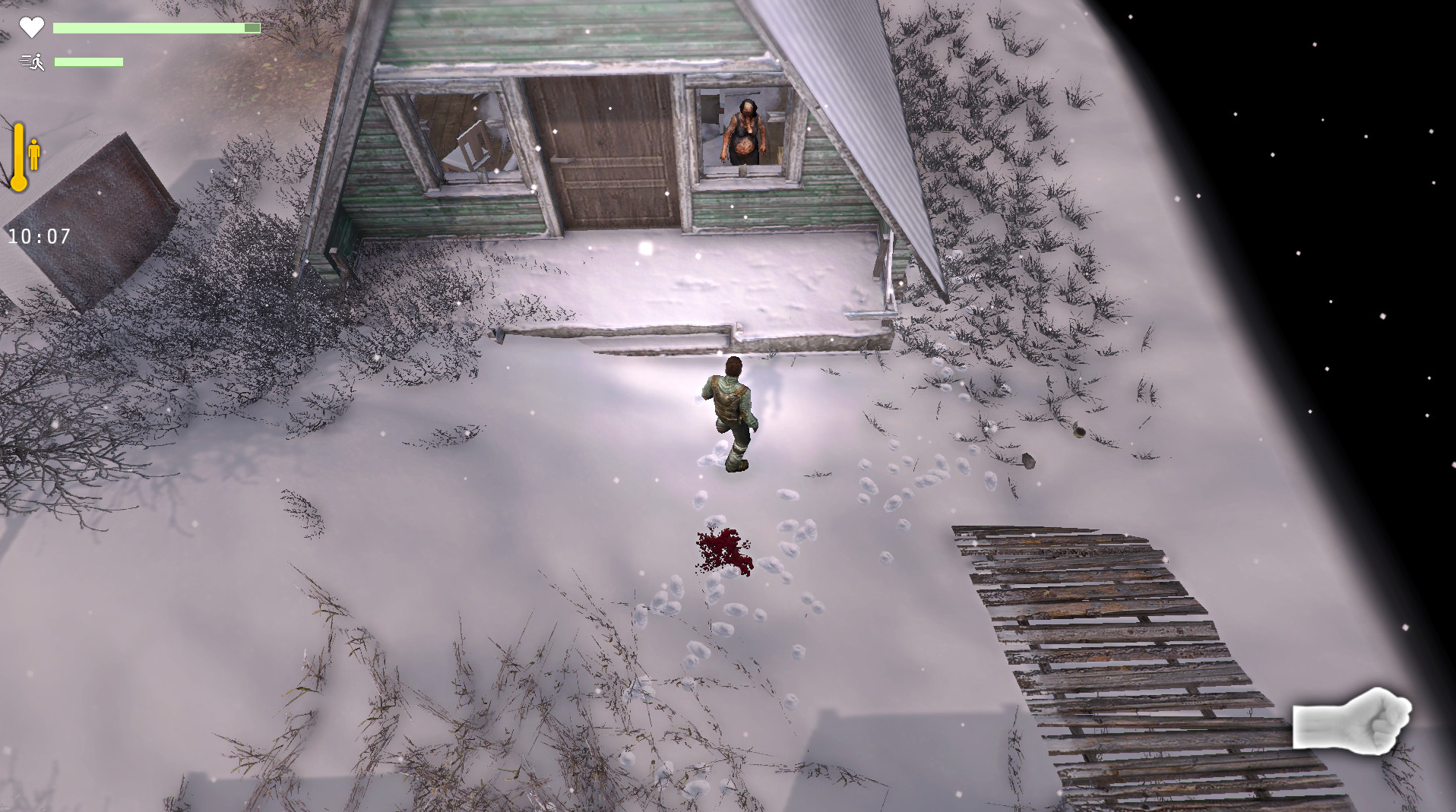
The first working build of the game appeared in the summer of 2013 – after a year of preparatory work on the project. That’s when the team decided to go out with him on Kickstarter. At that time, the industry still remembered well what astronomical sums Double Fine, inXile and Obsidian were able to raise with the help of crowdfunding in mid-2012.
To launch the campaign, a video was shot, a page on the service with concepts was prepared and the amount that would be enough to complete the project was determined – £ 60 thousand. At the end of June, Frozen State appeared on the service.
The campaign ended unsuccessfully. By July 22, the project was able to collect only a third of the required amount – £ 19 thousand, despite the positive feedback from the community.
“A very weak presentation prevented it. Submission of the project. At that time, everything was very simple and modest,” explains Prokhorov. At the same time, the team itself, before the start of the campaign, expected that it would be able to collect an amount in the region of £ 100 thousand.
The failure with Kickstarter helped Flox Studios rethink its approach to development. The guys came to the realization that in order to complete the desired project, they would have to change something. “We decided that if we want to finish the game, then we need to leave work and approach the issue seriously,” says Prokhorov.
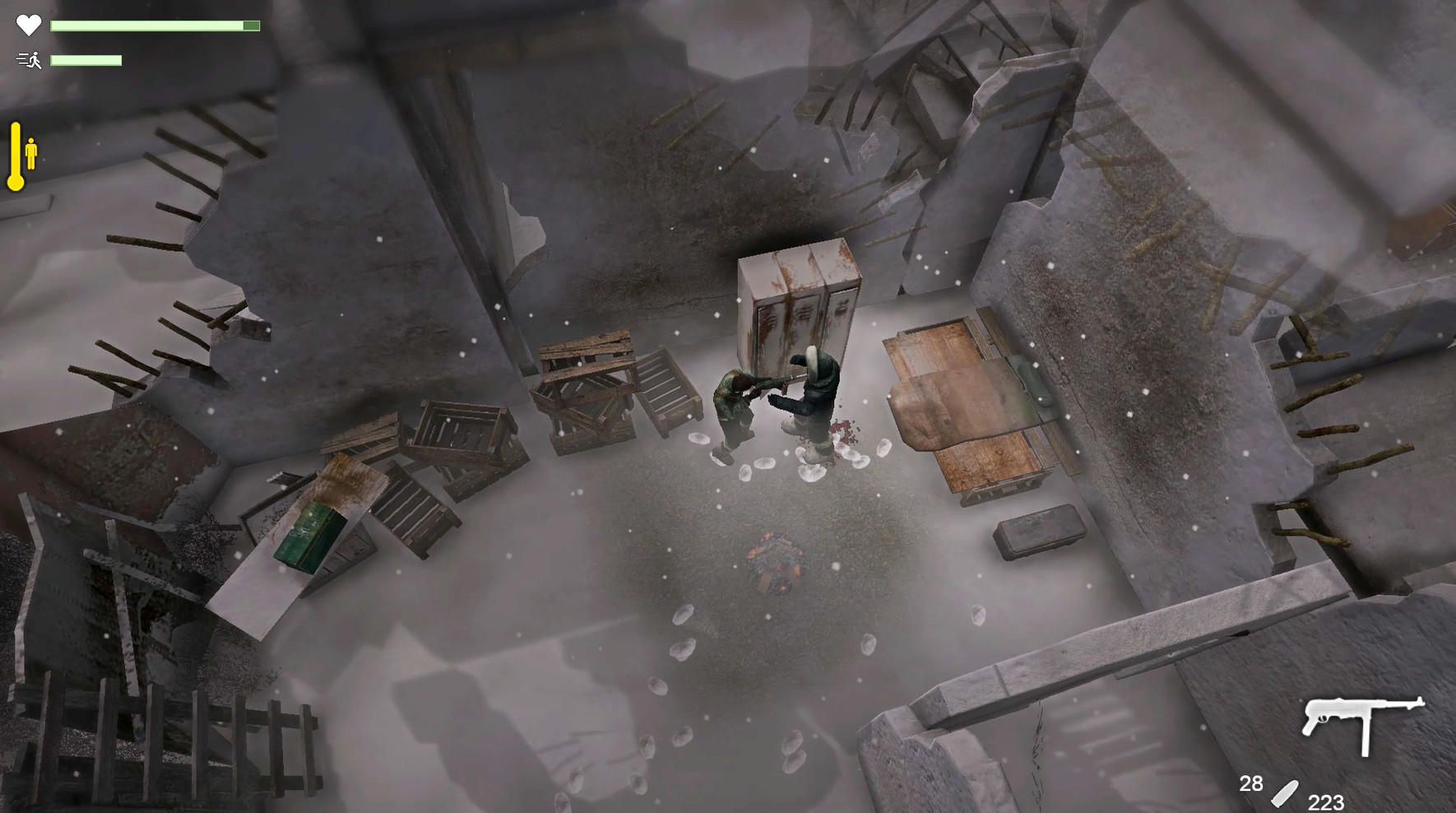
Frozen State
Steam and “Early Access”
Almost exactly a year after the end of the Kickstarter campaign, Frozen State appeared on Steam in the “Early Access” format. As the developers themselves admit, the game put on the market was a “playable alpha version”.
It was the release that allowed us to bring the game to the final version. Without this, the project would have had to be closed, because until the launch on Steam, developers who were already working on it full-time had to live on their own savings.
“Sales from early access ensured the further development of the game,” says Prokhorov. – “I won’t say that the release allowed us to expand [at the moment there are three people working in the team, all remotely, – editor’s note], but it gave us the opportunity to work and develop the project. It also helped a lot from the point of view of feedback, from the point of view of the community. This is a very strong motivation. When you do a project yourself, but you don’t get feedback, you think that everything is fine and healthy. Even if you don’t think so, at some point you get tired of the project, and you need a return. Early access is very good in this regard. It helps to understand what is better to focus on, in which direction to develop the project.”
Despite the appearance of a small but stable income, the team had to abandon some of the originally planned features that were originally planned to be introduced into the game.
The main thing that had to be abandoned was an eventful, large and elaborate plot. Flox Studios planned to fill the game with stories that reveal the original setting, and quests that would have several solutions.
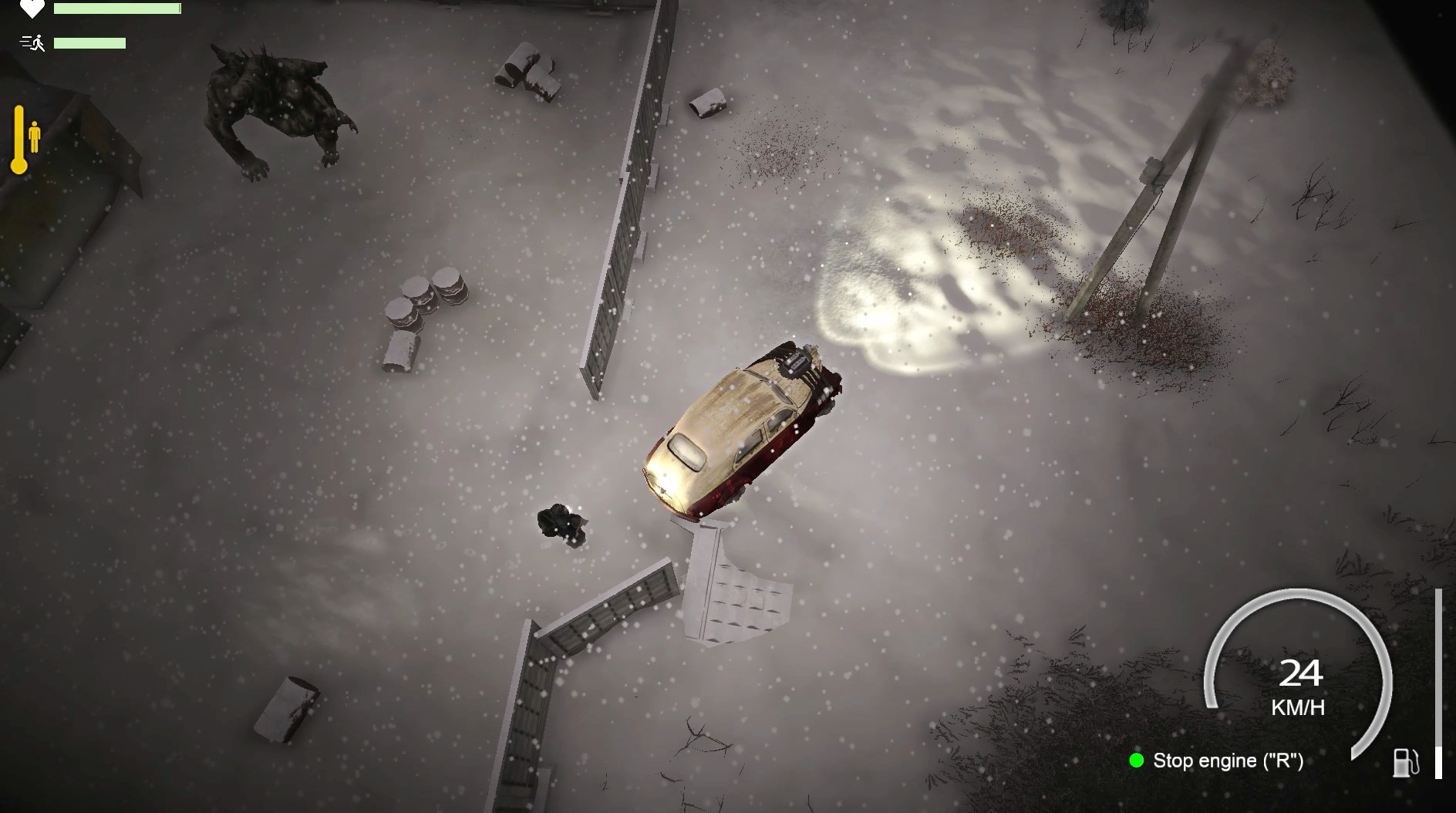
Frozen State
“We realized that with the money we received, we would not be able to hire people who would compose dialogues. Or so that I could hire another modeler, and I [started] coming up with dialogues and a history of the world. I wanted to do it so that the atmosphere would be felt more, but I failed. And this is a big disappointment for us,” says Prokhorov.
But we managed to implement procedurality. However, Alex is no longer sure whether it was the right decision to make a game with procedurally generated content.
“Procedural generation is good. She is now in fashion, and is found in many games. For example, in No Man’s Sky – everything is procedural. But you need to understand that 15 people in 3 years will not make content on 18 quintillion planets. It’s impossible. They will make 5-6 options that will be combined in different ways. And after a while you will see the same content (…) Some people like it, but I became a little disappointed in it. It seems to me that it is better to have a well-made manual content that I will go through and get the experience that the developers have conceived than to randomly pull the lever many times, as in slots, until the combination falls out from which I will get some super-pleasure.”
But Prokhorov does not consider it a big mistake either, since it was the procedural nature of the game that allowed the project to quickly enter “Early Access”. With each update, the developers added a set of new content that allowed the game to remain fresh for users, capable of surprising.
But the updates themselves did not have a very strong impact on sales: “Even those promotion rounds, those 500 thousand impressions that Steam gives, are very poorly converted into sales. Conversion by clicks is 1.5% on average on Steam. Such statistics are provided by the platform itself,” says Prokhorov. – During the release, 70 to 80% of sales are made. Then this tail drops sharply, and sales stop at about 10-20% of the release week or month. Of course, there are still discounts. But in general, the sales plateau is quite low. In order for the project to stay afloat, the release must be very good. Then the plateau will be the same.”
Life in Bunker
It wasn’t just “Early Access” that helped bring Frozen State to a full release.
When you work on the same project for a long time – especially for several years – you inevitably face fatigue from it. The best solution to the problem, if it is not possible to go on a long-term vacation or change activities, is another project.
Such an outlet for Prokhorov and Pozdnyakov was the simulator of the bunker Life in Bunker, which looks very similar to Dungeon Keeper. They did it for about a year in the evenings.
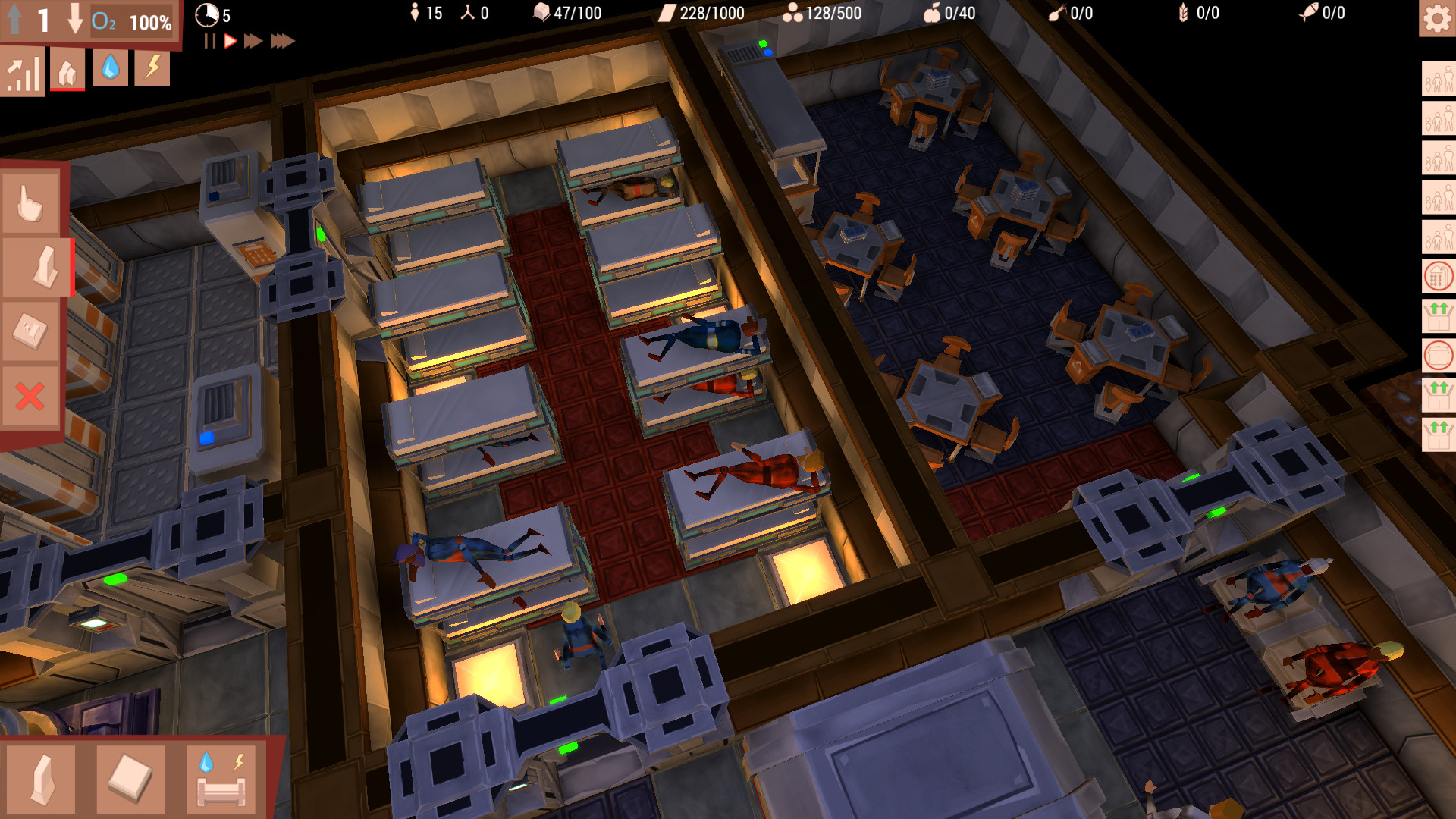 Life in Bunker
Life in Bunker
“At first there was an idea to just make a “digger”. We had to develop a game for a British company that wanted to promote gas safety. There it was necessary to dig trenches and lay pipes without touching houses and obstacles. But it didn’t work out with them, the British refused to make the game. We still have the concept of digging and laying communications on our hands. So we decided – why not just make a “digger”, but a game about some kind of underground settlement. The idea of the bunker came by itself. Underground – what to do? Bunker!”.
Without “Early Access”, the project was released on Steam in February 2016.
“Life in Bunker did not affect the development of Frozen State in any way, but it helped us a lot from a financial point of view. At that time [the beginning of 2016], sales of Frozen State were falling,” the team explains.
Despite the fact that the game allowed the studio to finish Frozen State, Life in Bunker was not very warmly received. Prokhorov explains this with errors in the simulator’s game design: “In Life in Bunker, you can put objects of different accessories anywhere. Usually in simulators you build a certain zone – for example, an industrial or recreation area – and objects are attached to it. And we decided to make it so that if you want, you can put a refrigerator next to the toilet. There is no need to build a separate zone. This gives you more options. For example, I don’t have the resources right now to make a huge zone for these refrigerators. And I want to put a refrigerator next to the bed. Yes, he may not fit in. But I have the opportunity. It turned out that people like restrictions! It was necessary to foresee this and make a little complexity. For example, so that the refrigerator next to the bed affects sleep. Or that the food in the refrigerator next to the toilet somehow spoils. Make the gameplay a little deeper. We didn’t provide for that.”
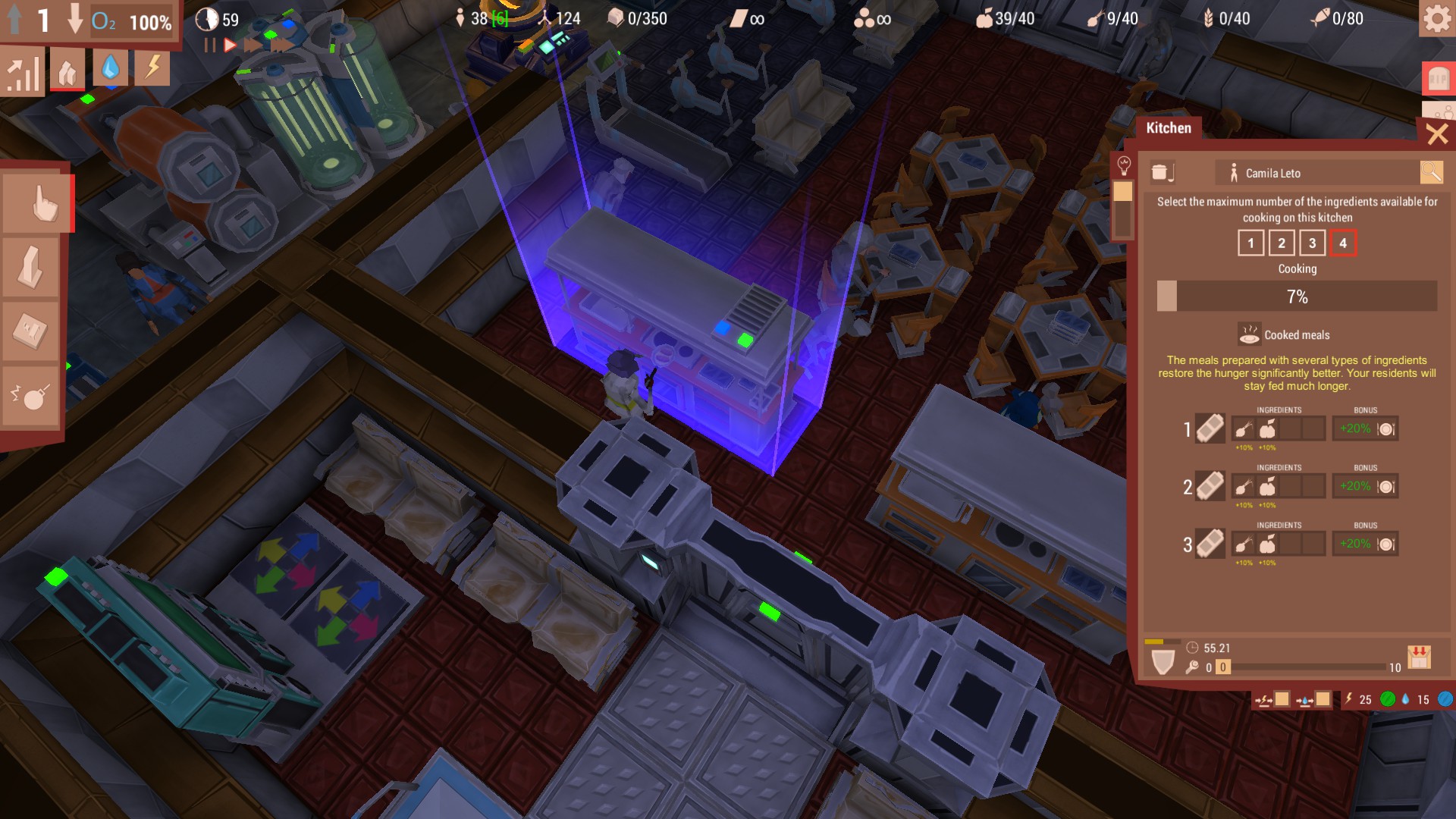 Life in Bunker
Life in Bunker
Release results
The final release of Frozen State on Steam took place in August of this year. He gave a serious increase in purchases: “compared to early access, we had 10 times more sales.”
According to SteamSpy, at the beginning of October, the number of owners of the game, the price of which is $ 11.99, is about 17 thousand and continues to grow. The average score of the game (based on 366 reviews) is 78%.
According to Prokhorov, the project paid off three years of development, but did not bring profit.
He considers the main mistake to be the lack of experience and the wrong choice of the project: “Doing such a project together was a big mistake. For example, Life in Bunker together was not difficult to do. I’m not tired of this project, I liked this project. We worked very well with our partner. I worked on the design, the programmer worked on the technical part. We didn’t have any special arguments, everyone did what he liked. Frozen State had a very large volume, it’s a technically difficult game.”
The team has not yet decided what Flox Studios will work on next. “Most likely, it will not be survival,” Prokhorov shared. – “I would remake Frozen State and make it more in the style of Resident Evil 4. I would add more action, make the game more story-driven. But we’ll have to wait for now: the volumes are too large.”

